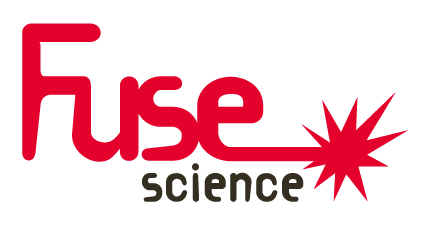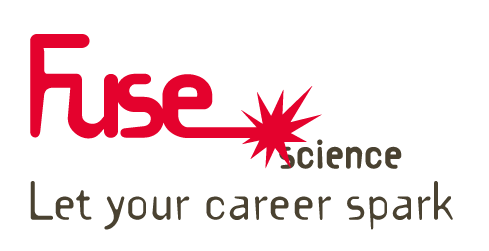
Interview Tips
Fuse Science Recruitment offers excellent Interview Tips
We all know that a job interview is one of the most stressful parts of the job hunting process. Often, stress can cause you to make glaringly obvious mistakes, resulting in all of your hard work and preparation going unnoticed. First impressions are vital to interview success so follow our top tips for how to avoid common job interview mistakes:
- Forgetting the name of the interviewer
- It’s important to build a rapport with your interviewer, so forgetting his/her name is going to make you look a little silly. To prepare yourself, prior to the job interview, find out the names of who will be interviewing you and make a note of them within your preparation notes. Make sure you skim over these notes whilst you’re in the waiting room as they will serve as a handy reminder
- Being late
- There is no excuse for being late to a job interview. Make sure you look up the directions to the interview ahead of time, and, if possible do a practice run so you know your route and the time it takes to get there. It’s always useful to allow yourself extra time on the day so you’re ready for delays such as traffic and late trains. If you arrive early, you’ll have more time to catch your breath and have a last minute look through your preparation notes.
- Of course, there will be some instances where you may be late, if that happens, make sure you call the interviewer as early as possible to let them know. If you’re late for an interview and don’t inform them, they might see that you will probably be late for showing up for work too
- Bringing up salary too soon
- A company isn’t looking for somebody who is only in it for the money. Wait until the interviewer has had the chance to get to know you and the qualities that you can bring to the role before you start to talk about money.
- Not preparing for tough questions
- Before the interview, you should always go over some tough questions you could be asked and rehearse your response. This will avoid that awkward moment where your mind blanks and you have absolutely nothing to say. You’ll only leave the job interview kicking yourself, thinking of what youshould have said
- Talking badly about a former boss/employer
- No matter how you feel about your former boss or employer, nothing will make you look worse than gossiping about them in a job interview. If you talk badly about your former employer, there is a high chance you’ll do the same about this company if you get hired. Plus, you never know who knows who so it’s best to keep your personal opinions to yourself
- Not asking questions
- At almost every job interview, the last question is “So, do you have any questions?” – and saying “no” just isn’t acceptable. Asking questions will make you appear interested and engaged with the role you have applied for and it’s future prospects. Bring around 5 questions to show that you’ve researched the company/role and you’re prepared for the job
- Not setting your phone to silent
- Forgetting to switch off your phone or setting it to silent is a simple mistake that can cost you dearly. Not only will it annoy the interviewer but it will also distract you from what you’re saying. Before walking into the interview ALWAYS remember to switch off your phone or put it on silent – you can take your calls after you’ve impressed in the interview
If you want to secure your dream job, it’s so important to avoid these common job interview mistakes so you can focus on showing your employer that you have all of the skills and qualities that they are looking for.
Some More Interview Tips……..
With the current job market so competitive, it’s vital to make the right impression at a job interview in order to stand a chance against your competition. Make sure you’re aware of the following generic job interview techniques that will hold you in good stead…
- Preparation – Doing your research in advance is so important. Understand the company and why you want this role in particular to avoid any embarrassing silences when asked the question. It’s also useful to put a folder together, containing copies of your CV and pieces of work you may want to refer to in the interview
- Look smart – Even if it’s the second interview and the company has a dress down policy it’s always the safest bet to go with a smart suit and tie or neat skirt/dress. After all, you may bump into the MD in the corridor
- Have you got any questions? – It is acceptable to have a few questions written down as a prompt for when this part of the job interview crops up – but remember not to ask something that has already been answered View our tips on what to ask at a job interview
- Punctuality – Plan your route before the day of your interview. It would also be useful to have a trial run so you know exactly where you’re going. On the day, ensure you leave in plenty of time to allow time for delays such as traffic or cancelled trains
- Confidence – Make sure you have a firm handshake and maintain eye contact throughout the interview. This will demonstrate your confidence in what you are speaking about… even if you are feeling nervous
- Give examples – You want to speak about your past experiences that highlight your successes and demonstrate why you are a good fit for the job. So be prepared with a number of examples
- Listen – You can often get caught up thinking about how you are going to impress the interviewer with your previously mentioned examples that you actually forget to listen to their questions and comments. Avoid waffling about irrelevant topics by taking the time to listen
- Follow up – After the job interview, ensure you contact your recruitment consultant with your feedback. How do you feel the interview went? Do you like the company? If you are working with a recruitment agency, it could also be a good idea to write a short letter highlighting your interest in the role and thanking the interviewer
What to ask at a job interview….
The part of the interview where you’re asked “have you got any questions” can strike fear into the heart of even the most confident interviewee. Asking questions at the end of an interview will ensure you come across as engaged and interested in the job you’re applying for. These interview questions are appropriate for almost any job interview, and will make sure you’re not left looking blank.
What sort of training can I expect in your company?
- This interview question shows that you take your development seriously, and allows you to find out how seriously the company will take your development.
How do you measure performance?
- Asking this question shows that you know the importance of monitoring and measuring how well employees do, and that you’re confident that you’re up to scratch.
How good a fit do you think I am for the company?
- Sometimes interviewers shy away from this question as it puts them on the spot. However, it allows you to find out what their misgivings might be there and then, and do your best to alleviate any concerns.
What are the biggest challenges that you think your organisation will face in the coming year?
- Here, you’re showing that you’re not just thinking about your role in isolation, but how it fits into the wider company. This gives you a chance to demonstrate how your skills and talent can help the company meet these challenges head on.
